“So you’re a camp counselor?”
“No, Ma! I teach at an Outdoor Science School.”
“Isn’t that the same thing?”
We instructors at High Trails Outdoor Science School get asked this question time and time again when anyone asks us what we do for a living. It can be frustrating because we are NOT a summer camp, although we do share some similar qualities and goals of these traditional June, July and August adventures in the outdoors.
Don’t get us wrong; we do love summer camps, and appreciate what they do for youth. In fact I’ve spent the past seven summers working at different camps and High Trails originally had Camp somewhere in it’s name (you can still type in camphightrails.com and find us…). We dropped those four letters from our name because we wanted to be associated more closely with a school (after all, that’s who our customers are)! With all of this, we definitely understand the confusion between a camp and an outdoor school, so we’ve made a list of the ways we are different and similar to a camp.
Top Four Differences
 ONE. We have college degrees and a professional atmosphere: our instructors come from a variety of backgrounds (some focused on education, others on science) and have various degrees (B.S., B.A., teaching credentials, and even Masters degrees) from around the United States.
ONE. We have college degrees and a professional atmosphere: our instructors come from a variety of backgrounds (some focused on education, others on science) and have various degrees (B.S., B.A., teaching credentials, and even Masters degrees) from around the United States.
This wide educational background of our staff helps us to learn more from each other especially in how to be a more successful teacher, and in our subject knowledge as well. Most summer camps don’t have this requirement for all of their staff, but we take pride in our strong educational background.
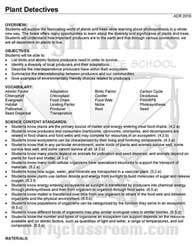 TWO. We are Teachers that use Lesson Plans: we teach students lessons about science and sustainability and how it’s related to their everyday lives. (Did you know that only about 1% of our water on Earth is useable for drinking and that about 70% of our useable water in California comes from Northern California?) We focus our lessons on learning science in a fun, experiential manner and spend a lot of time teaching our instructors how to be better teachers.
TWO. We are Teachers that use Lesson Plans: we teach students lessons about science and sustainability and how it’s related to their everyday lives. (Did you know that only about 1% of our water on Earth is useable for drinking and that about 70% of our useable water in California comes from Northern California?) We focus our lessons on learning science in a fun, experiential manner and spend a lot of time teaching our instructors how to be better teachers.
Every single one of our activites and classes has a lesson plan that we follow, and it’s organized from start to finish in a systematic and structured fashion.
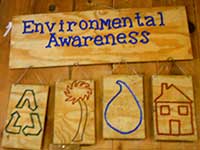 THREE. Enviromentally Focused: our mission is to “learn how our communities and the environment can all fit together on one healthy planet“. We want our students to learn about how they can make a difference and how their everyday actions can add up and help future generations (like how decreasing your shower time by 2 minutes can save 200 gallons of water per month). We have students work on reducing their food waste at meals to help teach students how we can reduce our trash and waste and where is all goes.
THREE. Enviromentally Focused: our mission is to “learn how our communities and the environment can all fit together on one healthy planet“. We want our students to learn about how they can make a difference and how their everyday actions can add up and help future generations (like how decreasing your shower time by 2 minutes can save 200 gallons of water per month). We have students work on reducing their food waste at meals to help teach students how we can reduce our trash and waste and where is all goes.
We chop our own firewood, pay our staff to recycle the school’s useful trash, and make people ride bikes around the site instead of driving. We work on making our impact smaller so we can be role models and show students real life examples of what they’ve been learning all week long.
FOUR. We teach students from the same school and grade: camps serve to a variety of ages and backgrounds of students, but we only focus on 5th and 6th grade students. This helps us to specialize in working with a set age of students and helps us master our interactions and teaching with them. Also since students are coming up from the same school, we are able to help them create bonds and friendships with their classmates and peers which they can keep for the rest of their lives as they go through school.
Top Four Similarities
Although there are some big differences between a summer camp and High Trails, there are also some similarities between us.
ONE. We work on enhancing students interpersonal skills: we do teambuilding activities (the adventure course), play team building games (the human knot), and get students to work with others that they may have never spoken to before (in both their cabin and field groups). What’s life if you can’t get along with others?
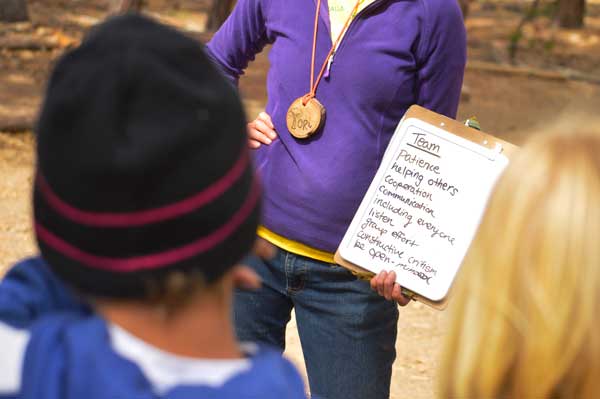 TWO. We focus on giving students an experience with nature: we don’t allow electronics here (yes, you can survive for a week without your gadget) but this allows students to see they don’t need technology to have fun, nor do they need to rely on it when you have a forest full of things to explore and learn about.
TWO. We focus on giving students an experience with nature: we don’t allow electronics here (yes, you can survive for a week without your gadget) but this allows students to see they don’t need technology to have fun, nor do they need to rely on it when you have a forest full of things to explore and learn about.
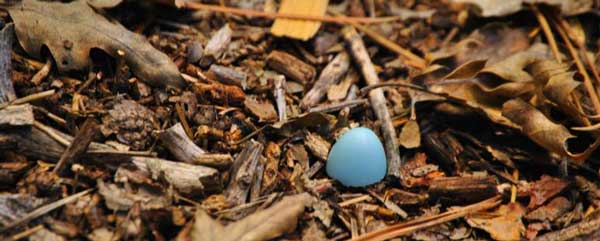
THREE. We have positive adult role models for students: have a hard or difficult background? We have an app for that. Lots of adults who care and want to guide students into becoming responsible young adults.
FOUR. We have FUN in a POSITIVE way: we have camp fires with skits, cookouts with hotdogs and smores, do line dancing, archery, rock climbing and singing songs are just a few. But most of all, we teach students how to have good old fashioned fun in the outdoors.
As you can see, while High Trails is a school, not a camp, we do have some similar goals for enhancing the experiences and lives of students. Since we are a school, everything is a learning opportunity and a “teachable moment”. We want students to experience the outdoors as well as gain an appreciation and desire to care for nature and the environment. Our classroom may be a forest, but it sure gets the job done!
At High Trails Outdoor Science School, we literally force our instructors to write about elementary outdoor education, teaching outside, learning outside, our dirty classroom (the forest…gosh), environmental science, outdoor science, and all other tree hugging student and kid loving things that keep us engaged, passionate, driven, loving our job, digging our life, and spreading the word to anyone whose attention we can hold for long enough to actually make it through reading this entire sentence. Whew…. www.dirtyclassroom.com



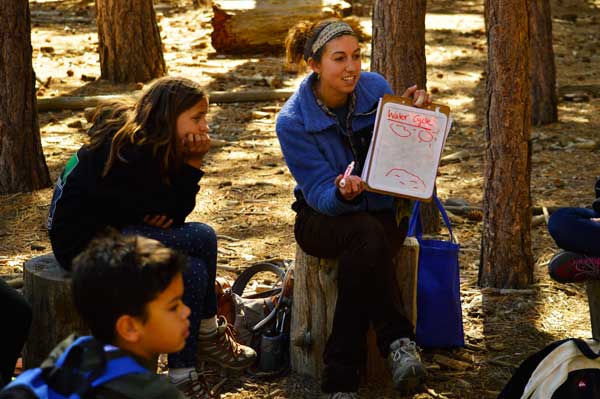
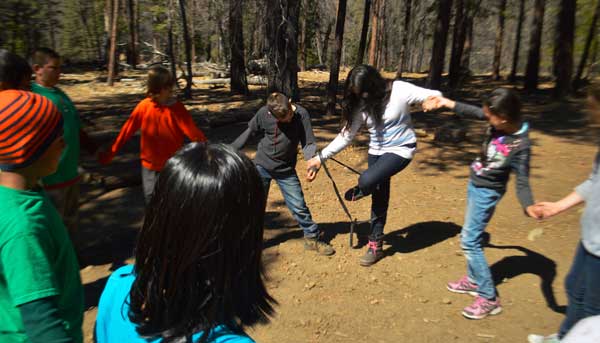
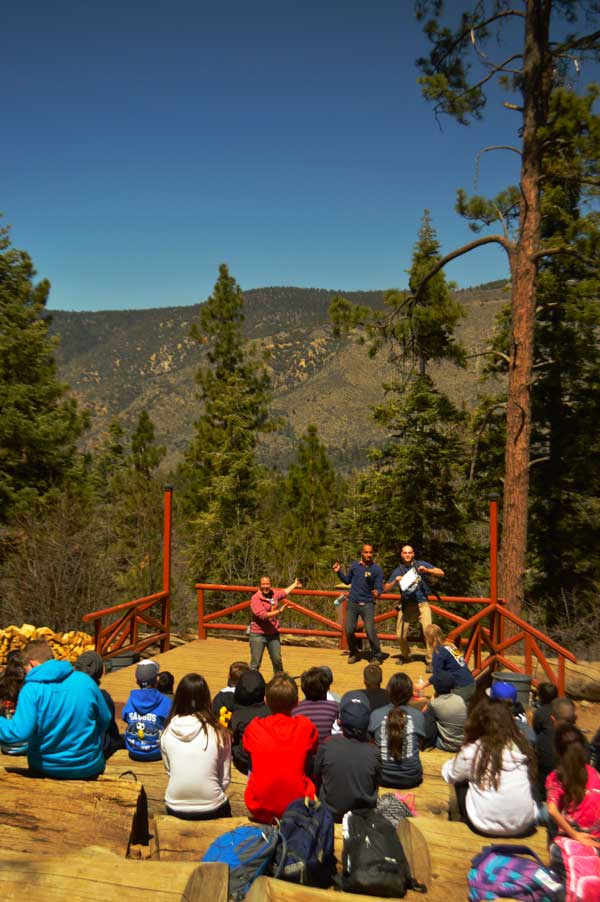
Comments are closed.